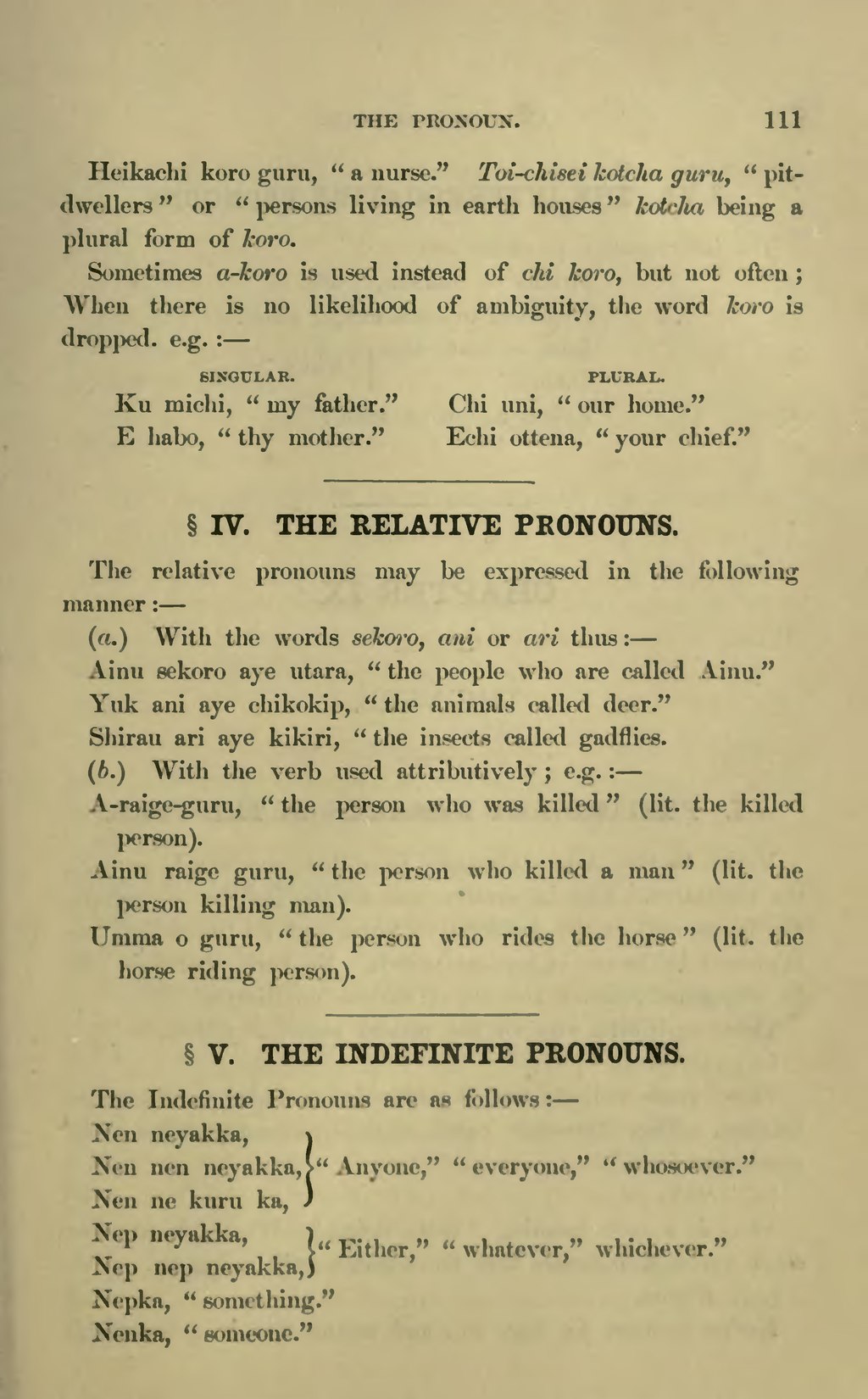THE PRONOUN.
111
Heikachi koro guru, " a nurse." Toi-chisei kotcha guru, "pit- dwellers" or "persons living in earth houses" kotcha being a plural form of koro.
Sometimes a-koro is used instead of chi koro, but not often ; When there is no likelihood of ambiguity, the word koro is dropped. e.g. :—
SINGULAR. |
PLURAL.
|
| Ku michi, " my father." | Chi uni, " our home." |
| E habo, " thy mother." | Echi ottena, " your chief." |
§ IV. THE RELATIVE PRONOUNS.
The relative pronouns may be expressed in the following manner:—
- (a.) With the words sekoro, ani or ari thus:—
- Ainu sekoro aye utara, “the people who are called Ainu.”
- Yuk ani aye chikokip, “the animals called deer.”
- Shirau ari aye kikiri, “the insects called gadflies.
- (b.) With the verb used attributively ; e.g.:—
- A-raige-guru, “the person who was killed” (lit. the killed person).
- Ainu raige guru, “the person who killed a man” (lit. the person killing man).
- Umma o guru, “the person who rides the horse” (lit. the horse riding person).
§ V. THE INDEFINITE PRONOUNS.
The Indefinite Pronouns are as follows:—
Nen neyakka,
|
“Anyone,” “everyone,” “whosoever.” |
Nep neyakka,
|
“Either,” “whatever,” “whichever.” |
- Nepka, “something.”
- Nenka, “someone.”

